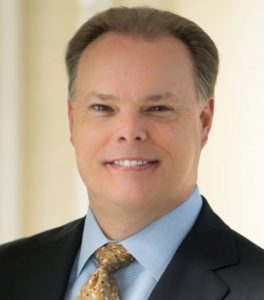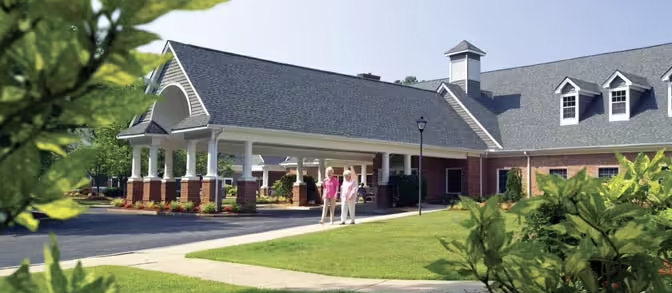Residents of a retirement community are no strangers to grief. They have lost parents and siblings. Sometimes their spouses have died, sometimes a child.
Sometimes the move meant leaving a beloved family home. Their trusted neighbors in the old neighborhood may have died or moved away themselves. Lifelong friends have departed this life. Sometimes they’ve lost work that brought great meaning to their lives, and sometimes they’re living with the loss of health or of abilities they once took for granted.
What if, one minister wondered, instead of asking them to come to us for a grief group, we went to them?
After more than 20 years of offering grief support groups in churches he served in Atlanta and Franklin, Va., Charles Qualls was interested in the possibilities of taking the grief group out of the church and into the senior community.

Charles Qualls
Qualls, pastor of Franklin Baptist Church, is a regular BNG columnist and author of the Bubba-Doo’s series.
He and his Virginia church have done two new things simultaneously: Trying out a just-launched resource from Pinnacle Leadership Associates, Navigating GriefLand, getting the grief group out of the church.
“Always before, I had offered these groups only at my own church location and focused my advertisements on congregants in-house,” Qualls said. “If word got out in the community, all the better.”
Yet a retirement community in Franklin, The Village at Woods Edge, offered an opportunity to do something different.
“The executive director of the retirement community is a member of our church,” Qualls explained. “She’s a deacon in our church, as is her director of nursing. And so I emailed her, the executive director, and just said, I’ve got an idea. It might be a fit at your place. Would you have lunch with me and hear me out?”
Over lunch, Qualls explained his idea and the two leaders agreed to a trial run.
They promoted the group within the retirement community, in church publications and through social media. Social media brought an unexpected participant.
On the first day, Qualls met a participant he didn’t know: “She lives out in a tiny rural community a good 25 minutes or more outside our town. She’s not a part of our church. So I was curious how she found out about the group. ‘Oh, my daughter up in Richmond saw the social media advertisements and told me about the group.’ Richmond is an hour and 15 minutes from here.”
The woman drove nearly an hour round trip every week to be a part of the group.
The group turned out to be about one-third from the retirement community, one-third from the church and one-third from the surrounding community.
The group turned out to be about one-third from the retirement community, one-third from the church and one-third from the surrounding community.
After the first meeting, Qualls told the Village administrators, “It’s clear we scratched an itch.”
It didn’t matter that most of these folks didn’t know each other in the beginning because they were meeting on the common ground of grief.
Through videos and group discussions, participants learned they weren’t alone in their feelings and weren’t crazy for feeling it. Their faces lit up as they realized, “It isn’t just me.” Group members made plans to get together after the Navigating GriefLand group was done.
Qualls said one of the particularly powerful sessions was focused on the issues of faith and grief.
“(You have) 12 grieving persons in the privacy of a closed-up room talking about the things they’d been mad at God about,” he recalled. “Talking about the things Christians had said to them out of the best of intentions that really just gave more hurt to them. Things about their own faith that have been challenged through whatever their experience might have been.”
Now, Qualls plans to offer Navigating GriefLand groups each year, alternating between groups held at the church and groups held at the Village.
He encourages other pastors to consider this off-site model as well.
“The big thing that stops our peers and our colleagues from offering something like this sometimes when they feel like they should, is this voice inside them that probably says, but I don’t know how. I didn’t take that class at seminary. I don’t feel ready to do this.
“Well, here’s news. None of us felt ready to offer our first grief support group. None of us felt ready to offer our first divorce recovery group. And so you dive into the deep end and and you learn from the first one, and hope that enough good things happen that that your participants come away with something and that you’ll be better probably at your second one. And you’ll be even better if you do it a third time.
“And so I would say to people, don’t let your lack of readiness, that feeling of not being prepared, don’t let it stop you.”

